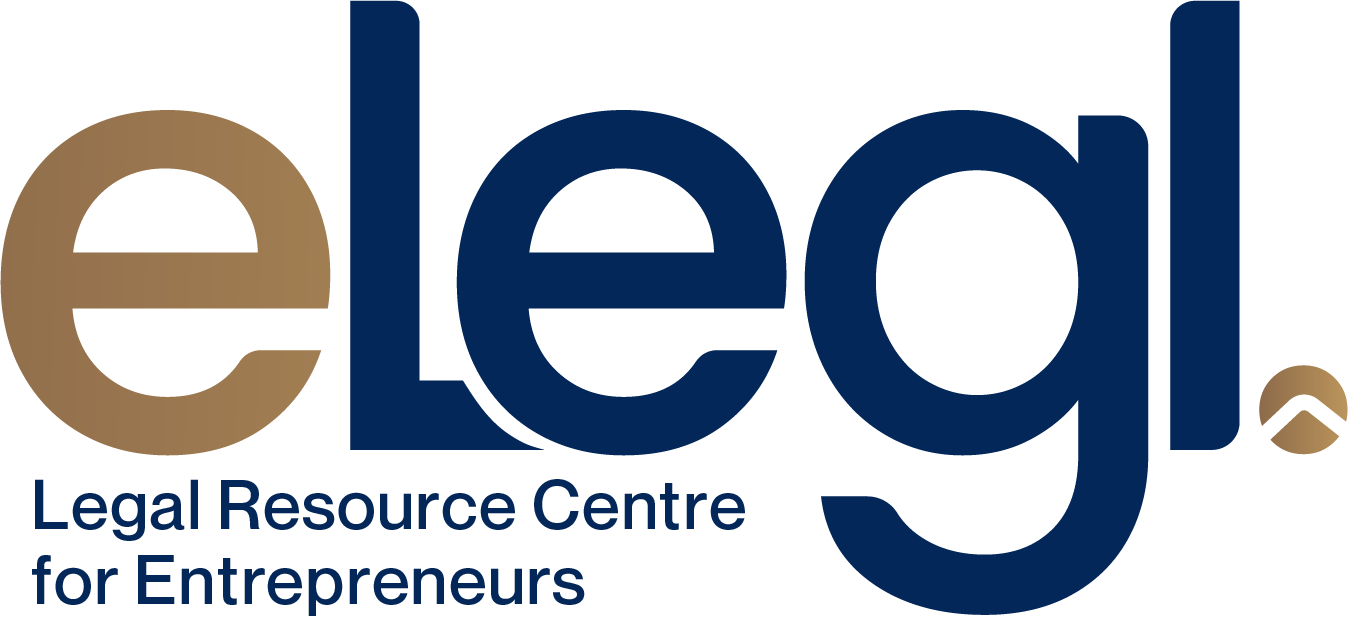
Legal Case Studies
Double Jeopardy for Intentional Tax Evasion: the Principle of Res Judicata
There are two primary laws that regulate the collection and enforcement of taxes in South Africa. These are the Income Tax Act 58 of 1962 and the Tax Administration Act 28 of 2011. Businesses may also be compelled to comply with the Customs and Excise Act 91 of 1964 and the Value-Added Tax Act 89 of 1991.
Therefore, as a result of this conduct, SARS imposed a 10% levy for penalties and a further 150% understatement penalty for tax evasion in terms of the Tax Administration Act.
Furthermore, the applicants were criminally charged in the regional court for intentional tax evasion. The applicants, therefore, contended that this was unconstitutional.
Legal question: The question before the court was whether it is permissible to impose both the understatement penalties and criminal penalties arising from the same conduct. Therefore, the court had to decide on the principle of res judicata. This means that once a matter between parties has been settled, subsequent attempts to litigate such a matter between those parties should be inadmissible.
Legal position: The general rule in our law is that no person, including juristic persons, may be punished for an offence twice. This is a fundamental right entrenched in the Bill of Rights and protected in terms of section 35 of the Constitution. The court therefore had to consider sections 222 and 235 of the Tax Administration Act and determine if the principle of res judicata could be applied in this matter.
Court’s decision: The court had to consider whether SARS levy penalty and understatement penalty in addition to the criminal charges in the regional court, resulted in double jeopardy for the applicants and whether this violated section 35 of the Constitution. The court held that section 222 and 235 were not unconstitutional nor did these sections infringe the rights envisaged in section 35 of the Constitution. The court’s rationale was that the Tax Administration Act makes a distinction between the criminal offences in sections 235 and understatement penalties in section 223.
Section 221 and 222 of the Tax Administration Act empowers SARS to levy a penalty in cases where taxpayers understated their tax. Section 223 of the Tax Administration Act prescribes the rate at which SARS may levy this penalty:
The benefits of complying with tax laws include:
Income Tax Act: This Act regulates taxable income. It identifies sources of taxable income, permissible deductions, expenditures, set-off of assessed losses, withholding taxes, donations tax, dividends tax, income tax gains, and exemptions. It also addresses tax rebates, tax avoidance, and tax evasion.
Tax Administration Act: This Act ensures the efficient and effective collection of taxes. It empowers the South African Revenue Service (SARS) to collect taxes, enforce tax laws, and educate taxpayers about their tax obligations. This Act also provides for the delegation of powers by the Commissioner, the authority to act in legal proceedings, and SARS to conduct audits.
Non-compliance with tax laws has severe consequences. The Act provides consequences for non-compliance, including penalties and criminal charges. There are instances where non-compliance may attract both penalties by SARS and criminal charges resulting in what is known as double jeopardy. For example, in the case of Motloung and Another v Minister of Finance and Others, the court had to determine whether SARS could order an understatement penalty and if the same parties can be criminally charged for the same matter.
Motloung Case: In this case, the applicants were seeking a declaratory order for the court to deem section 222 and section 235 of the Tax Administration Act unconstitutional on the basis that it results in double jeopardy. The Commissioner had imposed an understatement penalty in terms of sections 222 and 235 of the Tax Administration Act. However, the applicants were contending that criminal charges were unconstitutional as they were punished twice for the same crime.
In this matter, the applicants submitted zero returns to SARS from 2014 to 2018. This implied that the applicant had not generated any income and incurred no expenses during this period. In 2019, SARS conducted an audit for Value Added Tax (VAT) and Corporate Income Tax (CIT) where it was discovered that the applicants had intentionally evaded tax payments. Furthermore, it was also discovered that the applicants had prejudiced SARS, and their liability for VAT amounted to R819 607.09 and R493 600.
Therefore, as a result of this conduct, SARS imposed a 10% levy for penalties and a further 150% understatement penalty for tax evasion in terms of the Tax Administration Act.
Furthermore, the applicants were criminally charged in the regional court for intentional tax evasion. The applicants, therefore, contended that this was unconstitutional.
Legal question: The question before the court was whether it is permissible to impose both the understatement penalties and criminal penalties arising from the same conduct. Therefore, the court had to decide on the principle of res judicata. This means that once a matter between parties has been settled, subsequent attempts to litigate such a matter between those parties should be inadmissible.
Legal position: The general rule in our law is that no person, including juristic persons, may be punished for an offence twice. This is a fundamental right entrenched in the Bill of Rights and protected in terms of section 35 of the Constitution. The court therefore had to consider sections 222 and 235 of the Tax Administration Act and determine if the principle of res judicata could be applied in this matter.
Court’s decision: The court had to consider whether SARS levy penalty and understatement penalty in addition to the criminal charges in the regional court, resulted in double jeopardy for the applicants and whether this violated section 35 of the Constitution. The court held that section 222 and 235 were not unconstitutional nor did these sections infringe the rights envisaged in section 35 of the Constitution. The court’s rationale was that the Tax Administration Act makes a distinction between the criminal offences in sections 235 and understatement penalties in section 223.
Section 221 and 222 of the Tax Administration Act empowers SARS to levy a penalty in cases where taxpayers understated their tax. Section 223 of the Tax Administration Act prescribes the rate at which SARS may levy this penalty:
i. 0% if the taxpayer voluntarily discloses before SARS conducts an audit;
ii. 5% to 75% levy penalty for voluntary disclosure after SARS notification of an audit;
iii. 25% where a taxpayer did not take reasonable care in completing a tax return;
iv. 50% penalty SARS establishes that a taxpayer has no reasonable grounds for adopting a particular tax position;
v. 100% for gross negligence; and
vi. 150% for intentional tax evasion and if a taxpayer is obstructive, a 200% penalty will be levied.
Lessons: Business owners cannot rely on the principle of Res Judicata when they are subject to both penalties and criminal charges in relation to tax evasion. Keep accurate records of your business’ income and expenses. To assist with your tax compliance obligations, adopt a simple tax system that you can understand and comply with.
The benefits of complying with tax laws include:
1. Avoiding penalties: SARS is mandated to impose penalties and fines for non-compliance with tax laws. For example, SARS can impose penalties for tax evasion, tax avoidance and failing to file returns on time.
2. Avoiding legal action: By complying with the law, your business can avoid the cost and disruption of legal action. Always remember that legal actions against your business may result in criminal charges for you, your directors, or your employees, ho were involved in the non-compliance.
3. Maintaining your Business Reputation: Non-compliance with tax legislation and regulations also influences your business’ reputation. The positive aspect of complying with compliance is that it increases the business’ credibility with various stakeholders such as suppliers, customers, and employees.
It is also essential for your business to not only file returns on time, but also, to pay taxes on time. A qualified accountant or tax attorney can help businesses to understand their tax obligations and to comply with the law.
Tax Non-compliance: Two Scandalous Cases
1. Misrepresentation
In 2020, the High Court sentenced two businesspersons (the defendants) after they were found guilty of 487 counts of Value Added Tax (VAT) fraud as well as alternative charges such as racketeering, money laundering and corruption in terms of the Prevention of Organised Crime Act (POCA). The defendants were sentenced to 16- and 17-years imprisonment.
Facts: In this case the defendant’s misrepresented their business activities.
The defendants made use of fabricated invoices to misrepresent their income and expenses to SARS. They further deducted PAYE from their employees’ remuneration but this was never paid to SARS.
In addition, for a period from 2010 to 2016, the defendants fraudulently claimed VAT returns from SARS of R115 million. They would also forge suppliers’ invoices, prejudicing SARS by over R111 million.
Further, to secure local government tenders, the defendants submitted fraudulent tax clearance certificates.
These activities led to an investigation by the Criminal Investigation Unit of SARS.
Lessons from this case: It is important for business owners to note that defrauding SARS may not only result in penalties for your business but may also result in severe criminal charges being imposed on yourself. SARS compliance should be approached with utmost honesty and accuracy, failing which you may be held personally liable and subject to criminal charges.
2. Tax evasion: VSB Mutual Bank Case
The VBS Mutual Bank (the Bank) case is a major financial scandal in South Africa. This case highlights the importance of tax compliance for financial institutions. The Bank was placed under curatorship in 2018 after it was revealed that directors and other insiders had looted billions of Rands. This was done by the directors who approved irregular transactions including loans and excessive bonuses.
The Bank used several schemes to evade taxes including:
1. under-reporting income;
2. over-claiming expenses to reduce its tax obligations; and
3. using shell companies to move money around.
Lessons from this case: Although this has been an on-going case since 2022, SARS has called out implicated persons to pay individual income tax, VAT, and penalties.
There is a need for businesses to establish strong internal controls, transparency, and accountability in the financial sector. This case has also shown that businesses that do not comply with tax laws are putting themselves at risk of financial penalties and criminal prosecution.

Thank you!
Coming soon
This course is under development.
Legal Models & Tools
We've got a whole bunch of models and tools for you! There were too many to load here. Submit your E-mail below the form and we will send you a pack filled with useful models and tools!